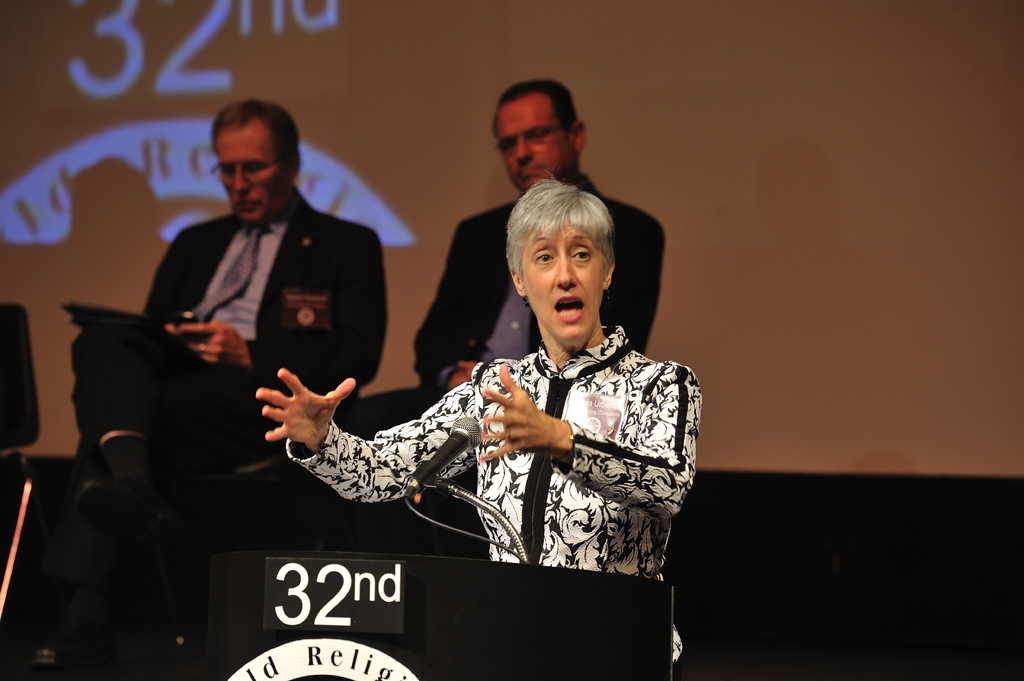Idea of an Ideal Government
Christian Perspective
by Rev. Felicia Urbanski
United Church of Canada

Abstract of Theme Speech
There are many ways to “be a Christian” in the world today. My own perspective is that of “liberal” or “progressive” Christianity, which has historic ties to the “Social Gospel” movement. In my presentation, I will attempt to answer the three questions posed by this World Religions
Conference:
Do faith communities impact governments? Should state and religion be separate? Does religion provide a framework for a government?
What is essential to me in Christian faith and theology is that each of us humans are beloved of God. To "live, move, and have our being" in God means that we are constantly seeking that connection which I believe we had before we were born. We long to unite with God after we die, and to live in a way which fulfills each person's deepest purpose. I believe that the presence of God exists in each moment of our lives, we need only to recognize this and live with the recognition of our belovedness. I view sin as separation from God, and that there is both individual and societal (systemic) sin.
I do not believe that Christianity is the one and only was towards God, but for me and many others in the world, it is a deeply satisfying spiritual path. As such, it must be chosen, never coerced, to be a truly authentic faith. There is room for questioning and exploration within this faith tradition. It is everevolving and ever-changing.
The great incarnational story of God's imminence taking on human form in Jesus is a powerful one on many levels. Christian faith for me consists in the deep desire to follow Jesus in the best way possible, to heed the call to discipleship. It acknowledges the "Jesus of history" as well as "the Christ of faith". I view the Bible as more descriptive than prescriptive. The Bible is our foundational text, and other sacred and secular texts can surely compliment it. The Bible is a "living document". I believe that revelation is not sealed. God continues to speak to people today. The Bible is a tool to use in understanding what our spiritual ancestors have experienced as God's abiding presence in the world. I do not interpret the Bible literally, but see it as a collection of inspired human writings pointing to the truths of our existence and our relationship with God.
There are several passages in the Bible about our relationship to governments which I will highlight in my presentation.
The incarnational story is also very challenging. Jesus' teachings are actually counter-intuitive to human nature and quite radical. They challenge us to look deeply within ourselves as well as at the very society in which we live, and to ask the question, "How is this bringing about the Kin-dom of God?"
I believe we are all called to be "co-creators" with the Divine. Through our individual relationship with God, we hear the "still, small voice within" urging us to live in tune with God's continual renewing of creation. Our own ongoing transformative process enables us to work together to realize God's realm of love and peace. Nurturing one's inner spiritual life through individual practices and through engagement in supportive Christian community results in positive outward action.
As we respond to our calling as sons and daughters of God, and knowing that a loving God will reconcile us to God's self in the end, we can live our lives in the light of Jesus' promise of spiritual abundance.


